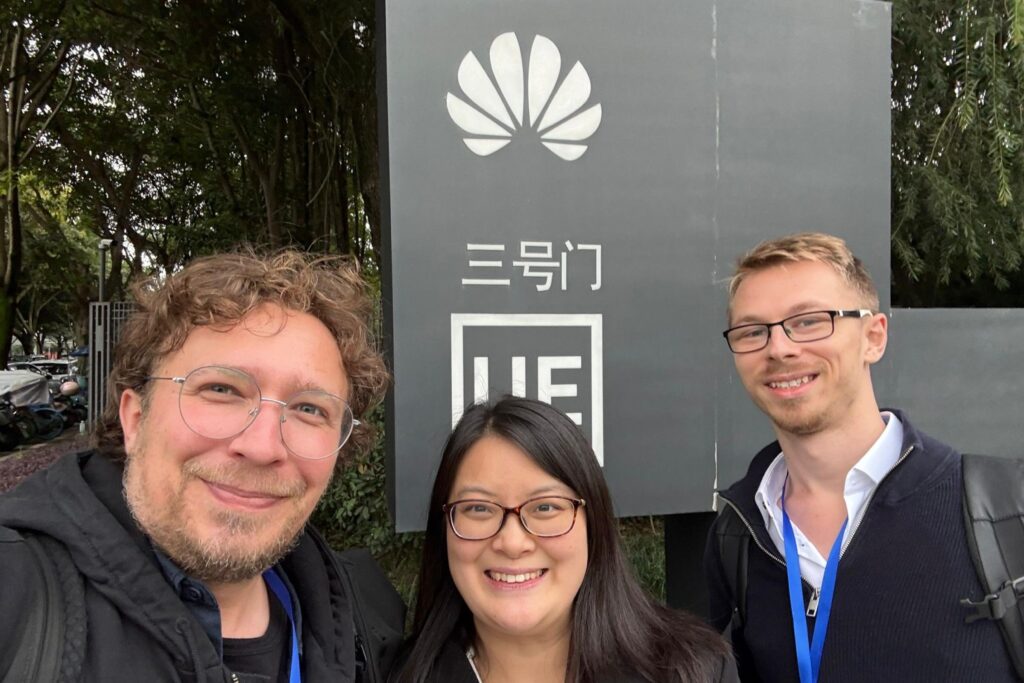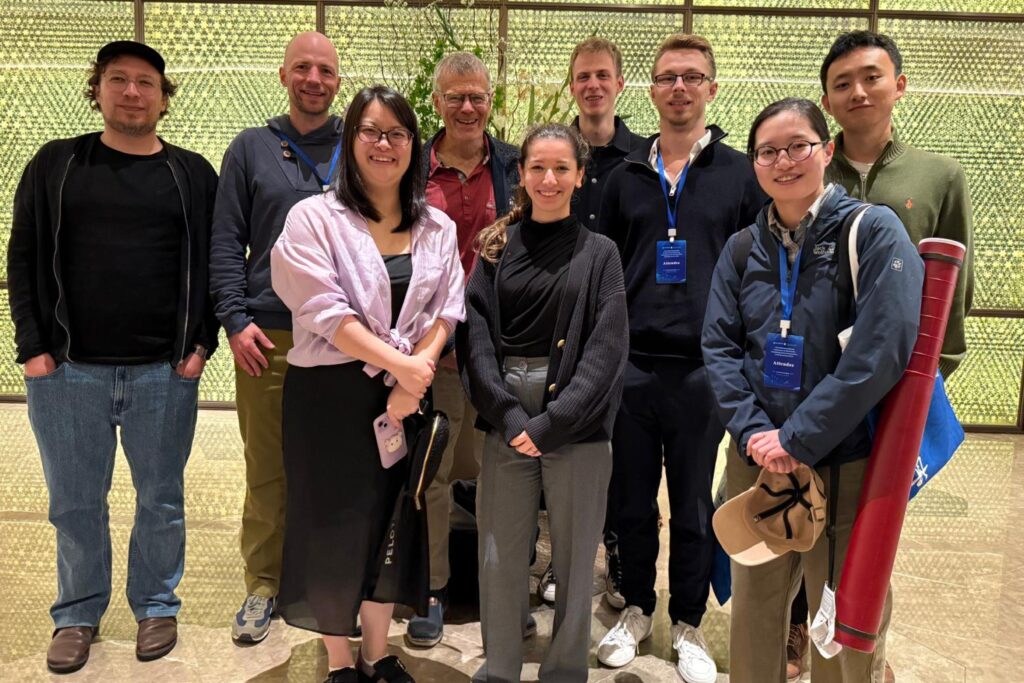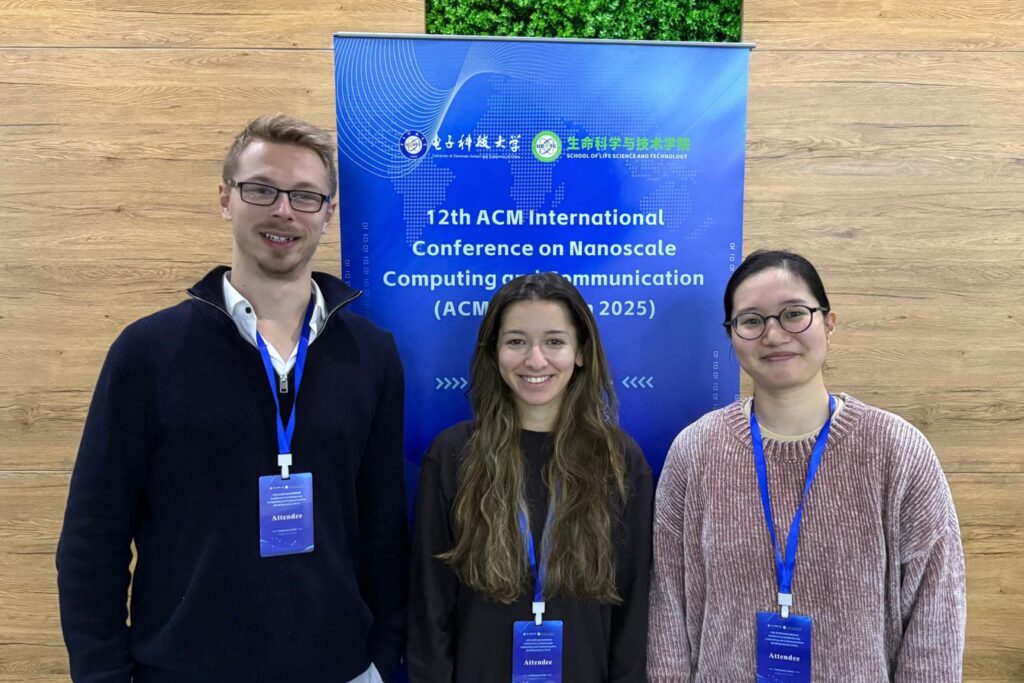Researchers from IDC successfully showcased their latest work at the 12th ACM International Conference on Nanoscale Computing and Communication (NanoCom 2025), held in Chengdu, China, from October 23–25.
Alongside colleagues from the SyMoCADS consortium, Prof. Robert Schober, Dr. Sebastian Lotter, Dr. Maximilian Schäfer, and Bastian Heinlein attended the leading conference in the field of molecular communications.
Prof. Robert Schober gave a keynote with the title “The Future of Molecular Communication Research”, where he outlined his vision for application-oriented MC research that combines experiments and theoretical advances. In this context, he introduced the “Synthetic Molecular Communications Across Different Scales” and “Holistic Design of Molecular Communication Systems” projects, for which funding has been recently acquired at IDC.
IDC researchers contributed to two posters:
- Airborne Molecular Communication Using MOS Sensors under Controlled Airflow
- Experimental Analysis of Surface-induced Molecular Adsorption in Static Airborne Molecular Communication Environments
Furthermore, IDC researchers have contributed to several papers accepted for presentation:
- Neural Network based Distance Estimation for Branched Molecular Communication Systems
- In Vivo Molecular Communication through Synthetic Biology: A Case Study
- Molecule Mixture Detection and Alphabet Design for Non-linear, Cross-reactive Receiver Arrays in MC
- Synthetic MC via Biological Transmitters: Therapeutic Modulation of the Gut-Brain Axis
- MC for Agriculture: A Framework for Nature-inspired Sustainable Pest Control
- Closed-Loop Molecular Communication with Local and Global Degradation: Modeling and ISI Analysis
Finally, Dr. Maximilian Schäfer was not only involved in several of the presented papers but also a member of the NanoCom organization comitee.
Congratulations to all participants for their outstanding work and for representing IDC on this international stage!
 |
 |
 |

